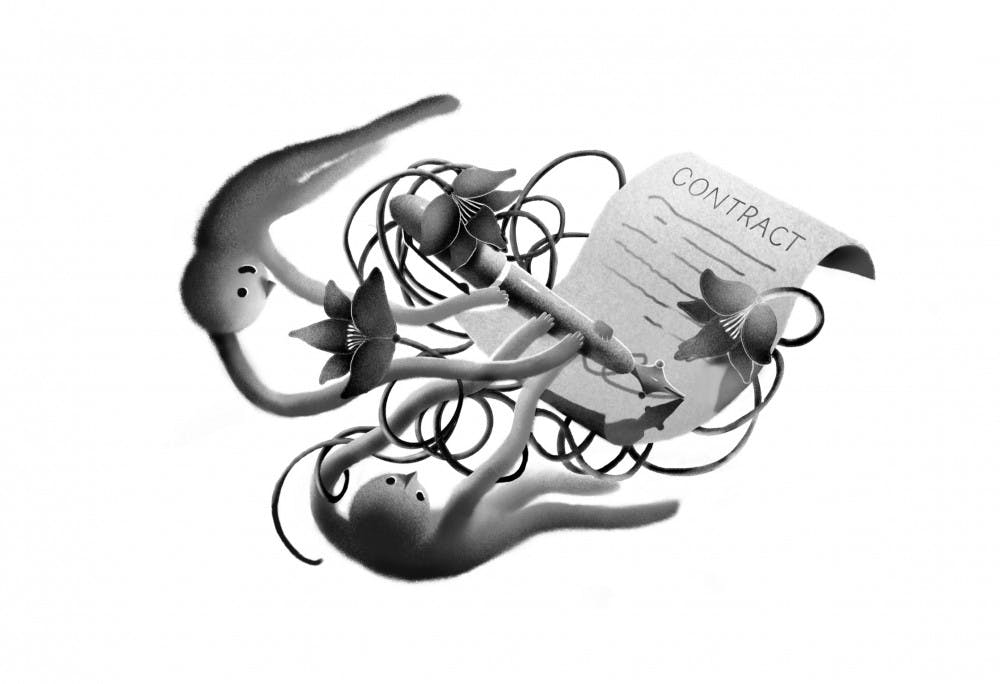Tuesday, the National Labor Relations Board extended the deadline to submit comments on a proposed rule which would prevent graduate students from being classified as workers. By reclassifying the relationship between universities and graduate students as primarily academic, rather than primarily business-related, the proposed rule would remove the obligation of private universities to recognize graduate student unions.
This is the third in a series of such extensions the NLRB has allowed since it first proposed the rule on Sept. 20, 2019. The NLRB has extended the time for public comments by one month, to Feb. 28, 2020, though future extensions are still possible. The NLRB must reply to all comments before it can decide whether or not to institute the proposed rule.
The rule should “obtain maximum input on this issue from the public, and then … bring stability to this important area of federal labor law,” according to the NLRB press release on the initial ruling.
The NLRB’s stance on graduate students’ classification as workers has flipped three times since it first ruled on the matter in 2000. The NLRB board tends to vary with the Commander-in-Chief’s political leanings, since the President of the United States appoints NLRB members to five-year terms on a rolling basis.
Against the backdrop of continued review by the NLRB, contract negotiations between Stand Up for Graduate Student Employees and the University have been ongoing.
According to a pre-election agreement signed June 2018 by the University, SUGSE and its union affiliate — the American Federation of Teachers — the University would have “no further obligations to the union” if the rule were to take force before the University and the union reached a collective bargaining agreement, The Herald previously reported. But the University would not be prevented from recognizing a graduate student union, should it still choose to do so.
Rithika Ramamurthy GS, one of SUGSE’s bargaining committee co-chairs, said that following a meeting Dec. 3, the University informed SUGSE it could not come to the table for further meetings until late January. But the University ultimately met with SUGSE representatives on Jan. 9.
Ramamurthy said the University cited the fact that the head of its bargaining team was taking parental leave, among other obligations that prevented University bargaining team members from meeting earlier. “It’s a little ironic that one person’s labor rights are being invoked to suspend the contractual fate of (2,584) graduate students … We’re hearing that these reasons are enough to suspend proceedings for what we think is too long of a time, and obviously the reason for that pressure is the NLRB ruling.”
The looming NLRB ruling could incentivize SUGSE to reach an agreement quickly, weakening their bargaining position.
Ramamurthy said members of SUGSE’s bargaining team “do this for free” and attend meetings “interchangeably all the time.”
University Spokesperson Brian Clark wrote in an email to The Herald that “our sessions have been highly productive — to date, we’ve reached tentative agreements on a number of significant provisions important both to graduate students and to the University.”
Ramamurthy said that SUGSE requested confirmation from the University that it would continue to bargain in good faith even if the NLRB ruling allowed the University to cease negotiations. The bargaining committee hoped the University would “give (them) some security” with respect to the potential NLRB ruling against unionization, but the University has not done so, Ramamurthy said.
Clark did not indicate whether the University would continue negotiations with SUGSE should the NLRB ruling exempt them from their obligation to do so.
“The University remains committed to bargaining in good faith and will continue to do so while the NLRB’s ongoing rule-making process remains underway,” Clark wrote. “Between semesters, the Brown and SUGSE/AFT teams continued to meet for negotiations in January. Additional sessions are taking place this week, and a number are scheduled for February.”





